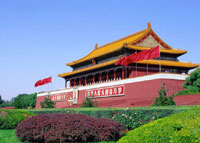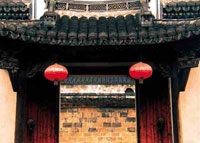|
|
Hotel & Venue
|
|
| |
 |
The brash modernity of BEIJING (the name means "northern capital") comes as a surprise to many visitors. For the last thousand years, the drama of China's imperial history was played out here, with the emperor sitting enthroned at the centre of the Chinese universe, and though today the city is a very different one, it remains spiritually and politically the heart of the country. Unexpectedly, some of the country's most pleasant scenic spots lie within the scope of a day-trip, and, just to the north of the city, is one of China's most famous sights, the old boundary line between civilizations, the Great Wall.
|
|
The long history leaves Beijing abundance of historical and cultural heritage that represents treasures from the city's civilizations. Today, the old city walls have been replaced by ring roads, and many of the old residential districts of alleys and courtyard houses have been turned into high-rise hotels, office buildings, and department stores. Beijing, a dynamic city where the old and new intermingle, remains a magnet for visitors from inside and outside China. Also, you can find all kinds of Beijing snacks and flavor food from all of the cities of China. Beijing thrives today as the political and cultural capital of China as well as a center of international activity and an important socialist base.
|
|
|
 |
Beijing is essentially a private city, and one whose surface is difficult to penetrate; sometimes it seems to have the superficiality of a theme park. To get deeper into the city, wander what's left of the labyrinthine hutongs, "fine and numerous as the
hairs of a cow" (as one Chinese guidebook puts it),
and check out the little antique markets, the residential
shopping districts, the smaller, quirkier sights, and the
parks, some of the best in China, where you'll see
Beijingers performing tai ji and hear birdsong – just –
over the hum of traffic. Take advantage, too, of the city's
burgeoning nightlife and see just how far the Chinese
have gone down the road of what used to be called
spiritual pollution.
|
|
Beijing Temple Fair
It is a tradition to go to temple fairs during the Chinese Spring Festival or Chinese New Year celebrations. Beijing, as the culture capital of China, has a large number of temples. Temple fairs used to be an event of worship, in which people might pray for happiness, peace and luck. The modern temple fair has a wider variety of activities like worship, commercial trade, and recreation. |
|
|
|
|